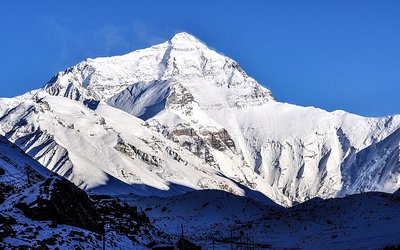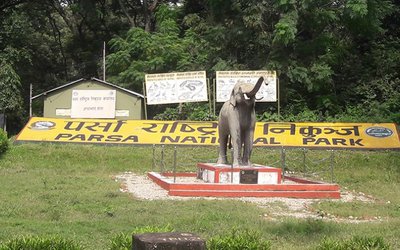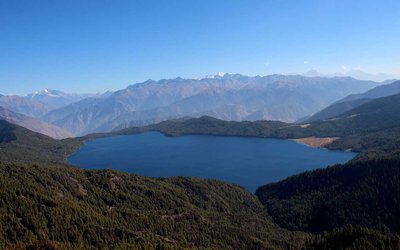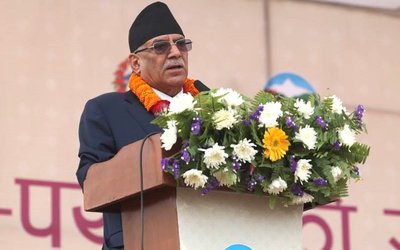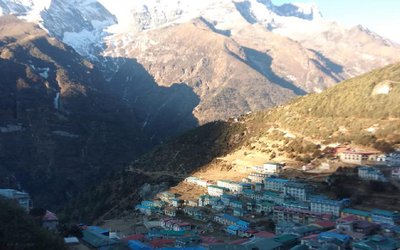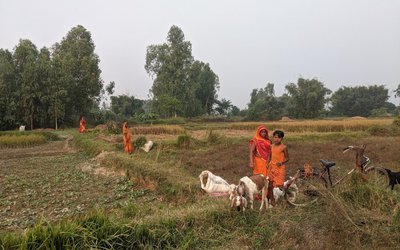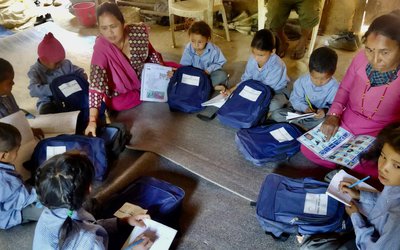Mahashivaratri is one of the largest Hindu festivals. In Nepal, it is celebrated most fervently in the sacred Pashupatinath area. The festival, dedicated to the Lord Shiva, took place on Friday, 24 February, and proceeded through the night and into Saturday. Officially, it was visited by 1.3 million people, although the unofficial data estimated there were 600,000 visitors.
For this scribe, walking along the front, which measures several kilometers, was a special feeling. To stand in the crowd was not worth it; in fact, I would not bear it. So I increasingly found myself wondering if I could enter into the temple complex, without spending seven hours of waiting like other people. Fortunately, in Nepal, tourists can enjoy respect from the local people, so policemen and organizers let me in without any problem. I persuaded them that, as a journalist, I wanted to write an article about this special holiday. A European, I was happy that I was admitted, but at the same time, I also felt a bit embarrassing in the lines, because I had overtaken many of them.
In the area behind the gate, I missed the first stage, on which music and dance performances were held. I was wondering about the real sense of this festival, which is the celebration of the god Shiva. I moved closer to the temple, but the steps inside are allowed only for the Hindus and Buddhists, not for those from the West. So I saw some shoving at the entrance to the temple courtyard. No wonder that people, after many hours of waiting, were losing their temper.
The fact that I was not allowed to step into the temple premises did not bother me. Now I went to a place that I personally was more interested in. At the Ghat, incineration of those who had died offered a great experience for me, a European. In my culture, burning of deceased takes place somewhere inside the crematorium, hidden to the eyes of relatives. In Nepal, deaths are far closer to the eyes of people than they are in the Czech Republic. I also saw the people, sick with leprosy, begging by the roadside. They should be in hospital and not on the sidewalk, I thought.
Mahashivaratri is an important festival and so those who died on the way would be considered very lucky. Below the hospice, where they are placed, people are in the terminal stage of their life. I saw the body of a dead man, who had just died. Alive, he would be taken to the sacred temple, and now he already had his feet soaked in water. Relatives poured sacred water from the temple into the mouth of the dead man. Then he was taken a little farther on the Ghat for burning, his ashes sprinkled into the sacred river Bagmati, which flows into the Ganges.
During the festival, the army helicopter was dispersing petals to the people. The helicopter, with its characteristic red, six-pointed stars, circled over the people. It was no accident - in the center of the star is displayed Shiva's trident, and thus the army has relationship with this festival. The Nepal Army has been celebrating the day of Mahashivaratri as the Army Day since 1935.
On the second bank of the river, crowds of people were milling. They were not interested in the spiritual dimension of this holiday. Mostly young people were getting fun from the performance of the "sadhus", who on stage showed their nakedness. Many people indulged in marijuana that was tolerated this day, even for the young people.
Organizational changes compared to last year were that the Pashupati Development Trust area had canceled the "priority-based line," which was introduced for those paying Rs 1000 to get access to the temple easily.
- A Czech Experience Of Kathmandu
- Feb 24, 2017


